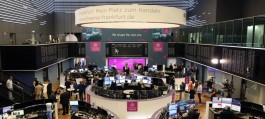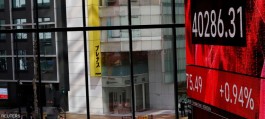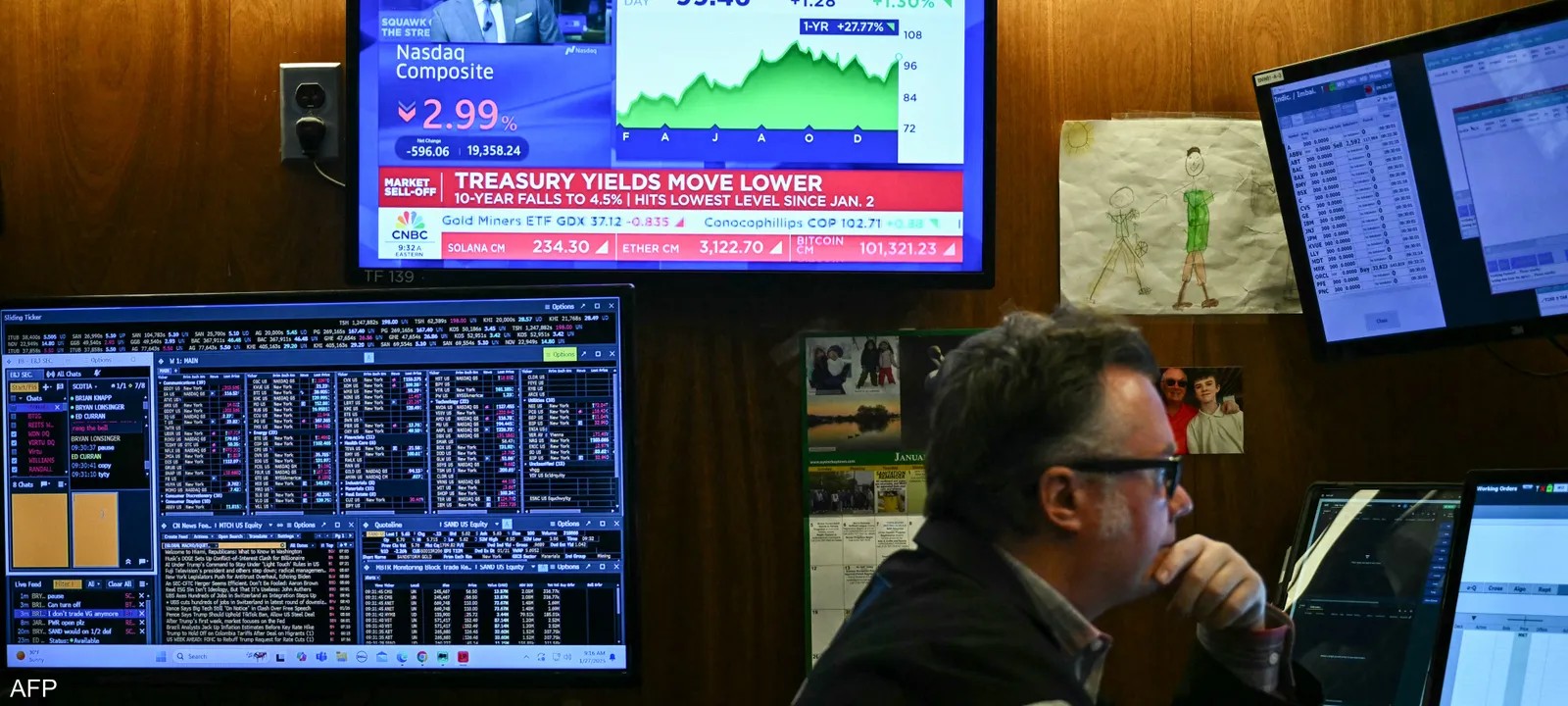US stocks fell immediately at the open on Tuesday, resuming a sell-off that began late last week after trade concerns were rekindled by surprise Chinese moves overnight.
The Dow Jones Industrial Average fell 504 points, or 1.1%. The S&P 500 lost 1.3%, while the Nasdaq Composite fell 2%.
Artificial intelligence-related stocks, which led the previous market rally, were the hardest hit. Nvidia's stock fell more than 3%, while Tesla and Oracle lost about 2.5% and 1.4%, respectively.
Chinese sanctions spark trade tensions
China has imposed sanctions on five US-based subsidiaries of South Korean conglomerate Hanwha Ocean, prohibiting organizations and individuals within China from doing business with them. The Chinese government explained that this move aims to enhance the country's national security.
In a statement to the Financial Times on Monday, US Treasury Secretary Scott Besant said that imposing sanctions on American companies reflects the weakness of the Chinese economy, adding that Chinese leaders want to drag everyone down with them.
The VIX volatility index, known as Wall Street's fear gauge, rose above Friday's closing level, indicating renewed market concern about the lack of a quick resolution to the trade dispute with China. The index also surpassed 22 points, its highest level in four months.
Escalating tensions and conflicting messages
Trade tensions have been escalating since late last week when US President Donald Trump threatened to impose additional tariffs of 100% on Chinese imports, causing a sharp decline in stocks. The Dow Jones Industrial Average lost more than 800 points on Friday, while the S&P 500 posted its biggest daily loss since April 10.
But on Sunday, Trump softened his tone in a post on Truth Social, saying, Don't worry about China, everything will be fine.
The comments sparked a strong rally in stocks on Monday, with the S&P 500 and Dow Jones rising more than 1%, marking the former's best daily performance since May 27 and the latter's best daily performance since September 11, ending a five-day losing streak. The rally recouped more than half of the S&P 500's losses from Friday and nearly two-thirds of the Dow's losses.
Tense expectations despite positive results
Trade policy remains the main driver of US financial markets this year, and last week we saw a sharp escalation in tensions between the US and China, Ulrike Hofmann-Burchard, head of global equities at UBS Global Wealth Management, said in a research note.
She added: With both sides hardening their positions, we expect increased volatility in stocks through the end of the month. However, the history of Trump-Xi negotiations suggests that escalation is often followed by a tactical truce, and the rare earths and shipping tariffs issue may hold the key to reaching a potential agreement.
Tuesday's market movements came despite strong quarterly results from a number of major companies. Johnson & Johnson, JPMorgan Chase, and Wells Fargo reported earnings that exceeded analysts' expectations, while Goldman Sachs also beat estimates.







































